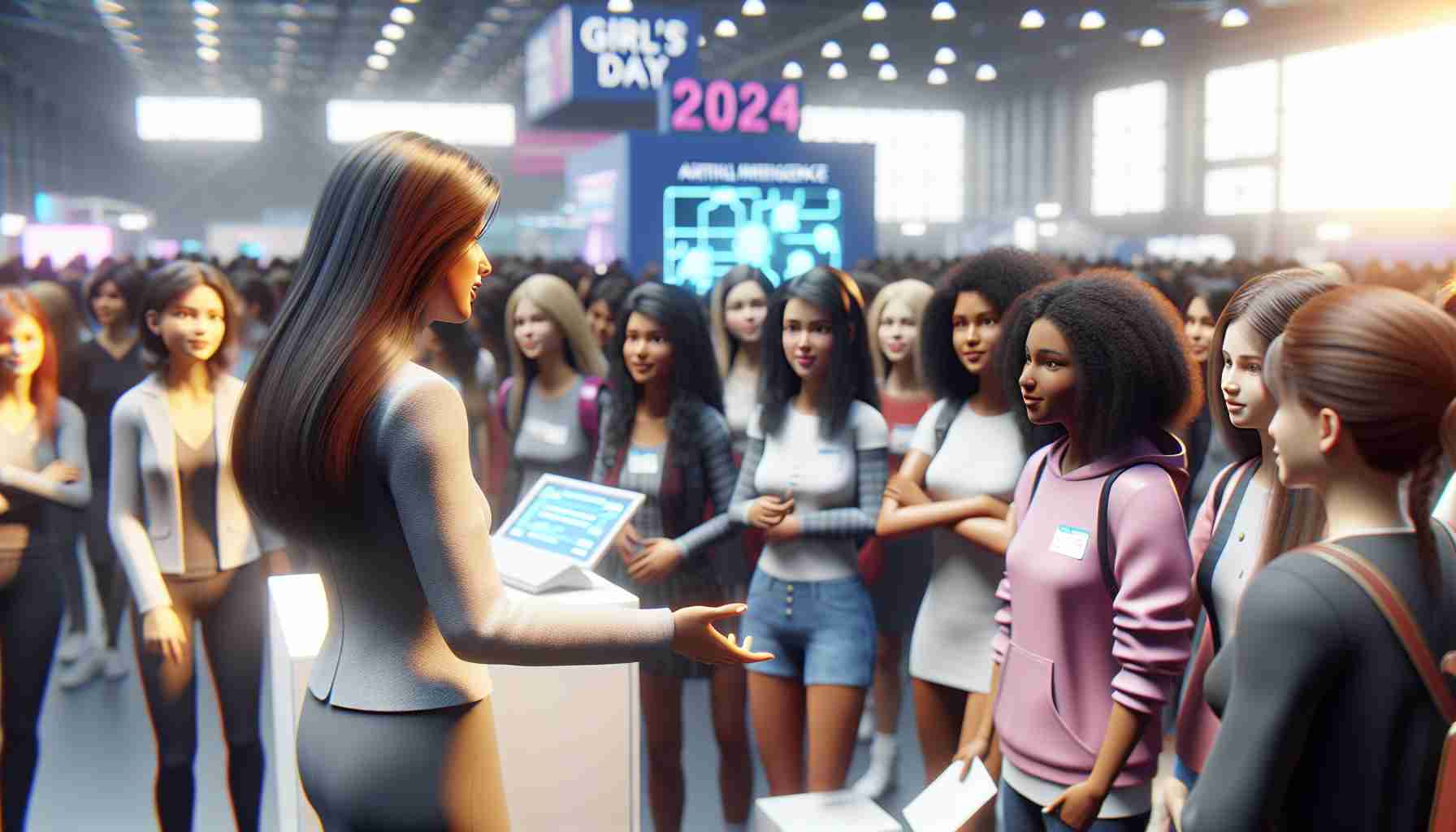Chancellor Olaf Scholz applauded the pivotal role of Girls’ Day in empowering young females, especially during the 2024 event focused on Artificial Intelligence (AI) and its impact on climate and space research. The initiative, which has promoted career and study orientation for girls since 2003, emphasizes STEM subjects—math, information technology, science, and engineering.
During their exploratory journey at the Chancellor’s office, 24 students from Berlin investigated a tech course designed by D21 initiative members, among which the Cornelsen Verlag and its subsidiary, Cornelsen Experimenta, stood out with their innovative educational concepts, marking another year of inclusion in the event’s tour.
By participating in Cornelsen’s workshop, the girls actively engaged with state-of-the-art technology such as thermal imaging cameras, gaining insights into AI-driven analysis. Three expert women introduced exciting careers in space—astronaut, astrophysicist, and AI engineer—bringing these professions to life for the participants.
The aspiring astronaut Dr. Suzanna Randall, AI specialist Dr. Shirin Riazy, and developer Dr. Merve Seçkin from Cornelsen Experimenta inspired the attendees with their experiences and the possibilities AI offers in their respective fields.
Christine Hauck, the chief educational strategist at Cornelsen, expressed the event’s importance in motivating girls to explore STEM disciplines and AI, highlighting the initiative’s role in promoting equal opportunities.
Annually, Girls’ Day exposes young women to professions and academic disciplines where female representation is under 40%. Nationwide businesses and educational institutions open their doors, aiming to inspire girls from the fifth grade onwards through exposure to role models and leaders.
For over 75 years, Cornelsen Verlag has shaped education with an extensive range of teaching and learning materials. Cornelsen Experimenta has spent 40 years fostering experiential science learning, offering top-tier educational resources that span early childhood to high school maturity. Both organizations, through their tools and concepts, aim to unlock individual potentials and understand the digital realm.
Here are some additional facts and relevant questions regarding the topic of Girls’ Day 2024 with emphasis on Artificial Intelligence:
Relevant Additional Facts:
– AI is increasingly becoming a critical field of study with applications that span numerous sectors including healthcare, finance, automotive, and entertainment.
– Encouraging young women to pursue careers in AI is significant because diversity in AI development teams can lead to more innovative solutions and prevent biases in AI algorithms.
– The European Union has been actively promoting digital education and the inclusion of women in the tech sector through various policies and programs.
Important Questions and Answers:
Q: Why is focusing on Artificial Intelligence important for Girls’ Day?
A: Focusing on AI is important for Girls’ Day because AI is shaping the future of work, and balanced gender representation in this field is vital for creating equitable and unbiased technologies. Also, empowering girls to engage with AI can contribute to closing the gender gap in STEM.
Q: What are the key challenges in getting more girls involved in AI?
A: Key challenges include combating gender stereotypes, providing accessible AI education resources to girls, increasing the number of female role models in AI, and addressing the gender diversity issues in the tech industry.
Q: Are there any controversies associated with Girls’ Day focusing on AI?
A: While not specifically controversial, some might argue that a one-day event is not sufficient to make a lasting impact and that continuous support and education are needed to truly increase female participation in AI.
Advantages in Emphasizing AI on Girls’ Day:
– Promotes gender diversity in a growing field of significant future impact.
– Encourages young women to pursue high-demand, well-paying careers.
– Helps reduce biases in AI technologies by involving more women in AI development.
Disadvantages:
– A one-day event may not be enough to counteract long-standing stereotypes and barriers.
– Can be perceived as tokenism if not backed by long-term support and opportunities.
– Resources for such events may not be equitably distributed, potentially benefiting those in urban areas more than rural ones.
I would refrain from providing related links as I cannot verify the validity of URLs outside the known safe domains (e.g., educational institutions, reputable organizations). However, for more information about Girls’ Day and similar initiatives, you could visit the websites of organizations engaged in promoting STEM education for girls, such as European Commission or UN Women. Please ensure to check the validity of these URLs independently.
The source of the article is from the blog mgz.com.tw

